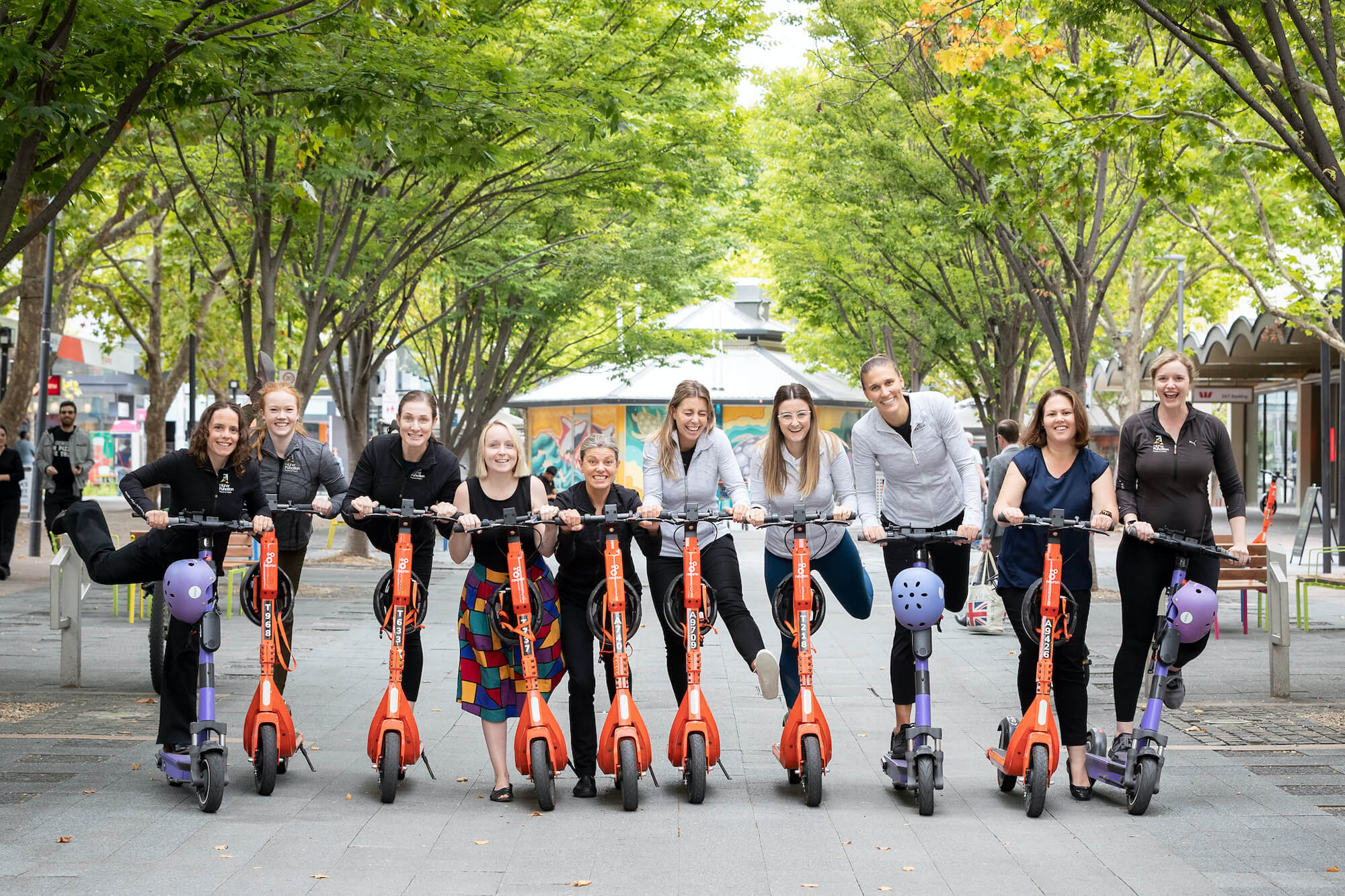By Andrea Rich – Physiotherapist
Balance issues are common in older adults and are a frequent reason for presenting to a GP or physiotherapist. A lack of balance makes us feel unsteady and worried about falling. There can be many reasons why older adults’ balance becomes affected, and we look at the lower leg and footwear related factors on falls risk.
Strength:
- When we are put off balance, often we need to step forward or sideways quickly to save ourselves from falling. This requires a lot of muscle strength to keep our body upright.
- Strength has an impact on our reaction time to how quickly we react to a loss in balance. Strength also affects how much force we can generate to recover our balance.
- As physios we are often helping older adults to build their muscle strength and stability to help with being more stable on their feet. This inadvertently also helps with increasing reaction time and ability to respond to being off balance.
Range of motion:
- The amount of movement we have in our weight bearing joints such as ankles, knees and hips can affect and alter our walking pattern as well as increase our postural sway or how our body changes to where our center of gravity is.
- What we physios often find in people with poor balance is either stiff and or weak feet and ankles. We can assist with this through manual therapy (mobilisations) to loosen tight joints and advise on what specific stretches, strengthening and balance exercises are most suitable. There may also be other reasons for pain or stiffness in an area and we can determine how to help with this.
Pain:
- Pain can cause us to walk differently to how we typically would, to compensate for pain in muscles or joints in areas like the foot, knee, hip and back. Pain can also increase the risk of impairing our balance if we are avoiding putting our weight through a leg or walking on uneven or firmer surfaces that may be uncomfortable.
- Physios can assess and determine the reason for pain and provide strategies on how to reduce or manage painful areas to help with re-training a walking pattern. By reducing a limp or compensated walking pattern, we can be more comfortable with walking and at less risk of falling.
Orthotics and footwear:
- Shoes with thick and cushioned soles increase the heel height which means we are taller or higher off the ground. This means we feel less sensation of the ground underneath us putting us at risk of losing our balance. We rely on our sensory system to help maintain our balance.
- Shoes with a thick and soft sole as well as low collar are also less supportive and may increase our falls risk.
- If you are unsure on whether your shoes are suitable for you, we can help problem solve which shoes will maintain comfort but also steadiness on your feet.
Sensory loss:
- Numbness in the feet can be associated with balance and gait issues as well as fear of falling.
- Determining the reason for the numbness will help us determine if it is treatable and also help with fine tuning other senses (sight and vestibular) as well as appropriate strength and stability exercises to increase balance.
Foot deformities:
- This can lead to being less stable on our feet due to factors including changed walking pattern as well as loss of movement, strength or surface contact with the ground.
- We as physios often find that foot deformities can be painful and lead to loss of toe, foot and ankle range of motion needed for a normal walking pattern. We can help with providing management strategies for pain as well as improving movement and stability in the foot to improve walking patterns and stability in walking.
At Higher Function, we offer Clinical Exercise classes taught by experienced physiotherapists and exercise physiologists to safely improve your balance, mobility, posture, core stability and pain.
References
Neville et al, 2019


